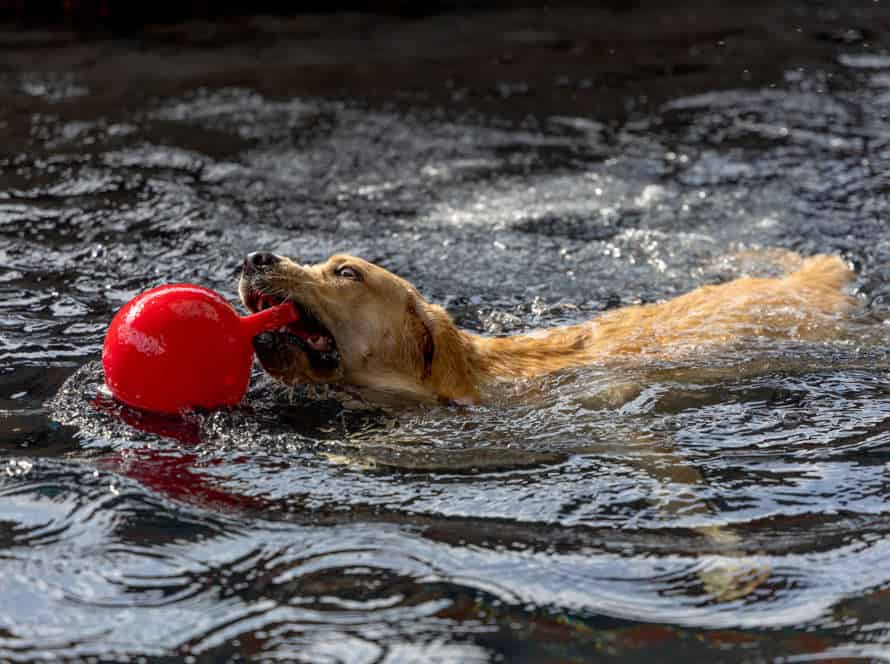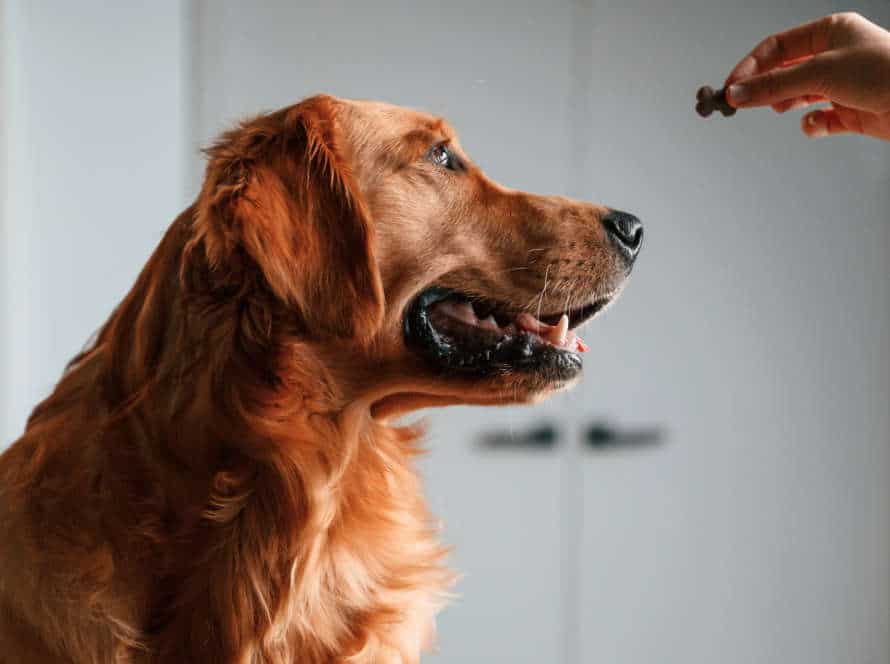Mastering Dog Nutrition: Tips for a Healthy Diet
A balanced, healthy diet is a must for your pup’s well-being. Here are some tips to master dog nutrition:
- Select dog food of good quality that meets your pup’s dietary needs.
- Offer a wide range of meats, seafood, and vegetables.
- Refrain from giving table scraps or human food that might be bad for its health.
- Monitor your pup’s weight and adjust its diet accordingly to keep a healthy weight.
- Ensure your pup always has access to clean water.
- Speak to your vet if you have any worries or questions about your pup’s dietary needs.
By following these tips, you can help guarantee your pup is getting the nutrition it needs to live happily. Pro tip: Regular exercise and playtime are also important to help maintain your pup’s overall health.
Understanding Your Dog’s Nutritional Needs
Dog owners must comprehend their pup’s nutrition needs. Supply them with good food to promote their health. What kind of food? What are the essential components of a healthy diet? Here we explain the key elements of a balanced diet and provide advice on how to feed your canine correctly.
Dog’s digestive system and what they need
As a pup parent, it’s vital you know your dog’s digestion and food needs. Dogs have short digestive tracts, so they need meals easy to digest and filled with nutrients. Plus, these furry friends are omnivores – so give them a mix of proteins, carbs, and fats.
Protein: Meat, fish, eggs, and dairy are great sources of protein for muscle development and health.
Carbs: Rice, quinoa, and sweet potato provide energy for your pup.
Fats: Fish oil & chicken fat make their fur glossy and skin healthy.
Plus, your dog needs vitamins and minerals. For their well-being, serve them a balanced and complete diet that has everything they need.
Pro Tip: Have your vet help craft a personalised diet plan for your pooch.
Life stages and breed-specific dietary requirements
As your pet ages, its nutrition needs adjust. As an owner, it is vital to grasp how breed and life stage affect diet. Picking the right food is key for keeping your dog healthy and happy.
Puppies need higher protein and fat than adult dogs. Senior dogs do best on lower protein and calorie diets. For instance, large breed dogs need lower calorie, higher calcium diets to avoid joint problems.
Think about asking a vet which dog food brand and formula is best for your pet at different life stages. Don’t forget to read the label and check ingredients for a healthy, balanced diet.
The importance of balanced nutrition and avoiding common mistakes
Achieving balanced nutrition for your pup is essential for their health and happiness. Not providing proper nutrition can lead to various illnesses and health issues, including obesity and digestive problems. To avoid these common mistakes, here are some tips:
- Don’t overfeed – excessive portions of food can cause obesity.
- Understand the nutritional needs of your dog – certain foods can cause digestive issues.
- Provide a balanced diet – meat, veggies, fruits and carbs.
- Stop table feeding – this can lead to serious health problems. Give healthy treats instead.
In conclusion: Balanced diet, right portions and dog-friendly food are key for your dog’s health and wellbeing.
Essential Nutrients for Dogs
For your pup to stay fit and fine, it’s key to grasp the necessary nutrients. These can be split into two groups:
- Macro-nutrients (carbs, proteins, fats)
- Micro-nutrients (vitamins, minerals, fatty acids)
Knowing the significance of each nutrient and how to provide enough for your pup can help you give them a nutritious diet.
Protein sources: meat, poultry, fish, and plant-based options
Protein is a must for dogs. There are many sources, like meat, poultry, fish, and plant-based options. These make for a balanced diet.
Some of the best proteins for dogs include:
- Chicken – lean, easy to digest, and rich in amino acids and glucosamine.
- Beef – high in iron, zinc, and B12. Dogs love its taste and it’s great for active and growing pups.
- Fish – omega-3 fatty acids help with inflammation and promote a healthy coat. Go for small cold-water fish like salmon, sardines, or mackerel.
- Plant-based proteins – Lentils, peas, quinoa, or soybeans are high in fiber and low in fat. Balance these with animal proteins for the right amino acid mix.
For the right proportions and types, talk to a vet or nutritionist.
Carbohydrates sources: grains, vegetables, and fruits
Carbohydrates are vital for pups! They provide energy and help with digestion. The best sources of carbs for dogs are grains, vegetables, and fruits.
Grains such as rice, oats and quinoa contain complex carbs, fiber, and essential vitamins and minerals. These are gentle on a pup’s tummy and can help regulate blood sugar levels. However, some dogs may be allergic or sensitive to certain grains – so always check with a vet first.
Vegetables like sweet potatoes, peas, and carrots are full of vitamins, minerals, and fiber. They are low in fat and calories, making them perfect for pup’s trying to keep their weight in check. But remember, some veggies like onions and garlic can be toxic to canines, so avoid them!
Fruits like apples, berries and bananas are an awesome source of natural sugars and fiber, and also provide vitamins and minerals like Vitamin C and potassium. But, fruit is high in sugar, so give them in moderation.
It’s important to select top-notch carbohydrate sources that are simple to digest and offer essential nutrients to maintain a healthy, balanced diet for your pup.
Fats sources: omega-3 and omega-6 fatty acids, and sources of healthy fats
Omega-3 and omega-6 fatty acids are essential for dogs. They are a part of a healthy diet. Here are some healthy fat sources you can add to your pup’s diet:
- Fatty fish – Salmon, mackerel, and sardines are packed with omega-3 fatty acids. They can reduce inflammation and boost skin and coat health.
- Flaxseed – Another great source of omega-3 fatty acids. Easy to mix into food.
- Chicken fat – Often found in high-quality dog foods. It’s high in omega-6 fatty acids.
- Coconut oil – Contains medium-chain triglycerides which help digestion and cognitive function in dogs.
Don’t forget, balanced nutrition is key. Talk to your vet before changing your dog’s diet.
Choosing the Right Dog Food
Nutrition for your pet? It’s essential! Many dog food types exist, like dry kibble and tinned wet food. But, which is right for your pup? We’ll go over the various options and their advantages. Let’s take a look!
Commercial dog food: types, ingredients, and how to read labels
Picking the right food for your pup can be confusing. There are many types of commercial dog food available. Read labels and understand the ingredients, to make the right decision. Here’s what you should know:
Types of dog food include:
- Dry kibble
- Wet food
- Raw food
- Home-cooked meals
The label lists ingredients in order by weight. The first ingredient is the most abundant.
Avoid dog food with:
- By-products
- Fillers
- Artificial preservatives
- Colors
Choose dog food appropriate for your pet’s age, breed and activity level. Consult your vet for tailored dietary recommendations. Monitor for signs of dietary intolerance or allergies.
Homemade dog food: benefits and downsides and how to prepare homemade meals
Making homemade dog food could be a healthy option for your pet. But, before deciding to switch, there are benefits and downsides to consider.
Benefits:
- You know what is going into their food.
- Can be tailored to individual needs.
Downsides:
- Time consuming to prepare.
- Difficult to get the correct balance of nutrients.
Steps:
- Consult with a vet or nutritionist.
- Choose the best protein source and supplement.
- Cook and let cool.
- Store in airtight container, refrigerate or freeze.
Tip: Consult a vet nutritionist before changing their diet. Not suitable for all dogs with health conditions.
Raw food or BARF diets for dogs
Raw food diets, also called BARF (Biologically Appropriate Raw Food) diets, are trendy for dogs. The concept is to feed them uncooked, natural foods, such as meat, bones, fruits, and vegetables. This aligns with a wild carnivore’s diet.
Benefits of raw food diets could be cleaner teeth, a shinier coat, and more energy. But there are risks, like bacterial contamination and mineral deficiencies.
Before beginning a raw food diet for your pup, talk to your vet to make sure it’s the right choice. Research and plan your dog’s raw food diet to make sure they get all necessary nutrients.
Special Dietary Needs for Dogs
Dogs have different dietary needs. It depends on the breed, age and activity level of your pooch. Some need special diets for allergies or obesity, while others may benefit from a balanced diet.
Let’s investigate the special diets for dogs.
Health issues requiring dietary changes or supplements
Humans and dogs share similar health issues. Dietary changes or supplements can help! Here are some common issues and what can help:
- Obesity: Feed pups a low-calorie diet with protein/fiber.
- Diabetes: Give a high-fiber, low-fat diet to regulate blood sugar. Insulin injections may also be necessary.
- Joint problems: Add glucosamine/chondroitin to diet for joint health. Reduce pain/inflammation from arthritis.
- Digestive issues: Low-fat, easily digestible diet plus probiotic supplements for diarrhea/vomiting.
- Skin allergies: Omega-3 fatty acids reduce skin inflammation/itchiness. Hypoallergenic diets may help.
Pro Tip: Consult vet to figure out specific dietary needs for your pup, based on their health issues/individual requirements.
Allergies and intolerances
Dogs, just like humans, often have allergies and intolerances. Special diets are vital for these pooches. A tailored diet can reduce symptoms and improve your pup’s life quality. Here are some dietary tips for allergic and intolerant dogs:
- Pick hypoallergenic food that does not include wheat, soy, or corn.
- Try a raw diet with cooked or raw meat, fruits, and vegetables. This diet is grain-free and without added preservatives or additives.
- Search for dog food labeled as limited ingredient diets, which have fewer components to decrease exposure to allergens.
- Ask your vet for advice on the best food and nutritional supplements for your doggo.
Note that dogs have unique dietary needs and one diet may not work for every pooch. Good nutrition is necessary to ensure your pup has a happy and healthy life.
Other special dietary considerations for healthy weight, teeth, and skin
A balanced diet is a must for your pup’s health. But, adding other dietary considerations can help too!
- For weight: Consider low-fat options or add veggies like green beans or carrots to meals. Monitor portion sizes to avoid overfeeding.
- For teeth: Offer crunchy treats like carrots or dental chews to prevent plaque & tartar. Try a water additive to keep teeth clean and freshen breath.
- For skin: Include sources of omega-3 & omega-6 fatty acids, like fish or flaxseed. These fats help maintain healthy skin & a shiny coat. Consider an anti-itch supplement with probiotics & prebiotics to support gut & skin.
Remember to consult your vet before making any major dietary changes or introducing new supplements.
Feeding and Serving Your Dog’s Meals
Feeding and serving your pup right is important. Consider their age, exercise, and any health conditions when choosing their food. Think about the quality and if it meets their nutritional needs. We’ll go over the details of feeding and serving in this section.
Meal size and frequency
Figuring out how much and how often to feed your pup is essential for keeping them fit and healthy. It depends on factors such as age, weight, activity levels and nutritional needs. Generally, adult dogs should eat twice a day, while puppies may need up to 4 meals. Here are some tips:
- Measure food with a cup.
- Read the food packaging or ask your vet for info on the right amount of food.
- Don’t forget treats and snacks when measuring.
- Monitor your dog’s eating habits – adjust meal size and frequency.
By providing the right amount and regular meals, you can help your pup stay in shape and get the nutrients they need.
Proper food storage and handling
Secure food storage and handling are essential for healthy, safe meals for your pup. Here’s how to master nutrition for your four-legged pal:
- Refrigerate or freeze the food when you get it home.
- Follow the storage instructions on the dry kibble packaging.
- Store canned food in a sealed container in the fridge, and use it within a few days.
- Wash your hands and food surfaces with warm soapy water before and after food prep.
- Serve in clean bowls and wash them after each meal.
- Don’t let food sit out for more than half an hour, especially in hot weather.
- Watch your pup’s weight and adjust their food for a healthy body.
Pro tip: Ask your vet or a canine nutrition expert for advice on the best food and portion sizes for your pup.
Training and positive feeding behaviors for a healthy diet.
Training and good nutrition are key for your pup’s health. Here’re some tips to get you started:
- Set a feeding routine: Feed your dog same time and place each day.
- Measure their food: Use a cup to portion out their meals.
- Offer healthy treats: Use yummy, low-calorie treats like carrots, green beans, or strawberries.
- Avoid table scraps: Human food can be unhealthy for doggies, so try to avoid feeding them leftovers.
- Ask your vet: Talk to your veterinarian for dietary advice and nutrients.
By following these feeding and training tips, you can help your furry pal live a healthy and long life!
Frequently Asked Questions
1. Why is nutrition important for my dog?
Nutrition is important for dogs because it plays a significant role in their overall health and well-being. A good diet can help maintain healthy skin and coat, reduce the risk of certain diseases, improve digestion, support a healthy weight, and increase energy levels.
2. What should I feed my dog for a healthy diet?
A healthy diet for dogs should consist of high-quality proteins, healthy fats, and carbohydrates along with essential vitamins and minerals. Your dog’s diet should also be balanced and appropriate for their age, breed, and activity levels. Consult with your veterinarian to help determine the best diet for your dog.
3. Are there any foods I should avoid feeding my dog?
Yes, there are several foods you should avoid feeding your dog, such as chocolate, grapes and raisins, onions, garlic, avocado, and some artificial sweeteners. These foods can be toxic to dogs and lead to serious health problems.
4. How often should I feed my dog?
The frequency of feeding your dog depends on their age, breed, and activity level. Puppies typically require more frequent meals, while adult dogs may only need to be fed once or twice a day. Work with your veterinarian to determine the ideal feeding schedule for your dog.
5. Can I give my dog supplements?
Supplements can be beneficial for dogs with dietary deficiencies or health conditions. However, it’s important to consult with your veterinarian before giving your dog any supplements, as some can be harmful or interact with other medications they may be taking.
6. What signs should I look for if my dog is not getting enough nutrition?
If your dog is not getting enough nutrition, they may have a dull coat, poor digestion, low energy, weight loss, or lack of appetite. It’s important to schedule regular check-ups with your veterinarian to ensure that your dog is receiving the proper nutrition and to detect any potential health issues early on.







